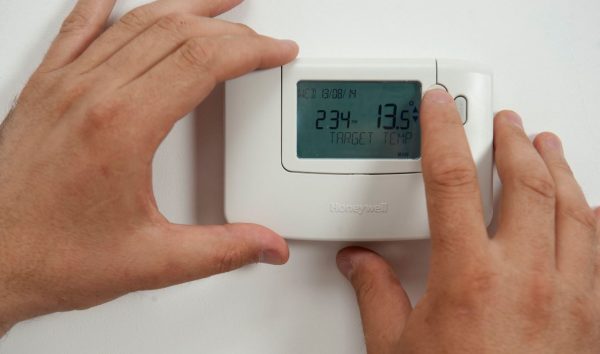
The Government’s new Green Homes Grant enables homeowners in England to get financial help to make their homes more energy efficient.
Here the household insurance team at specialist broker Adrian Flux answers all your FAQs about the grant, including who’s eligible (and who’s not eligible), how much it’s worth, what works are covered and how you apply.

What is the government’s new Green Homes Grant?
The government’s new Green Homes Grant was launched on 30 September and it will be open for applications for works which must be completed by 31 March, 2021.
The scheme helps homeowners in England finance specified energy efficiency improvements to their homes – such as the installation of low-carbon heating systems and insulation or double glazing to replace single glazing.
How much is the grant worth?
The Green Homes Grant will cover two-thirds of the cost of eligible improvements, up to a maximum government contribution of £5,000.
If someone in your household receives benefits you may be eligible for a voucher covering 100% of the cost of the improvements up to a maximum of £10,000.
What works are covered by the Green Homes Grant?
The government has divided energy efficiency works into primary and secondary measures. Your grant must be used to finance at least one primary measure and then you can also apply for a secondary measure.
The primary measures are insulation for: solid walls, cavity walls, under-floor, lofts, flat roofs, pitched roofs, loft rooms and for park homes.
Low carbon heating systems are also covered as a primary measure for consideration including: air source heat pumps, ground source heat pumps, solar thermals, biomass boilers and hybrid heat pumps.
Secondary measures include: draught proofing, double or triple glazing (where replacing single glazing), secondary glazing (in addition to single glazing) and energy efficient replacement doors (replacing single glazed or solid doors installed before 2002).
Secondary measures also cover heating controls and insulation including the fitting of hot water tank thermostats, hot water tank insulation and new heating controls (such as, appliance thermostats, smart heating controls, zone controls, intelligent delayed start thermostats and thermostatic radiator valves).

Will the Green Homes Grant pay for solar panels?
The purchase and fitting of solar panels are not covered by the Green Homes Grant.
Who is eligible for the new grant?
You may be eligible for a Green Homes Grant if you live in England and you own your own property, including park homes on residential sites, or you are a landlord in the private or social rented sector.
Who can’t get it?
You can’t get the Green Homes Grant for newly built homes which have not been previously occupied nor if you are living in rented accommodation.
Can I apply for a Green Homes Grant for works already started?
You can only begin work once your grant has been issued. Any work started before the grant is issued cannot be claimed. The grant will be valid for 3 months from the date of issue or until 31 March 2021 (whichever is earlier).
Can I get a grant for works already completed?
Energy efficiency works already completed will not be considered for a Green Homes Grant.
Will the Green Homes Grant be paid in cash?
The Green Homes Grant is not paid in cash but in voucher form. The voucher can be redeemed by the tradesman that completes the works on your behalf.

How do I apply for a Green Homes grant?
You can check your eligibility for a Green Homes Grant here.
Are there other eco-friendly grants available to me?
The Electric Vehicle Homecharge Scheme provides grant funding of up to 75% towards the cost of installing electric vehicle chargepoints at domestic properties across the UK.
While there is no specific government grant available to assist in the cost of fitting solar panels to your home you can register for a Feed in Tariff (FiT) which will secure you payments from your energy supplier if you generate more electricity than you use, which is very often the case.
The FiT will reward you for the surplus electricity supply generated by both solar panels and wind turbines.
More ways to save money
Let your insurer know about all the works being carried out on your home, some may even qualify you for a discount on your annual insurance costs.
Adrian Flux is a specialist home insurance broker with some great deals on buildings and contents insurance with even more deals to be had on combined buildings and contents packages. The best deals are usually available over the phone. Call 0800 369 8590 to find out how much you could save.
DIY project at home? Why you must tell your insurer about your plans